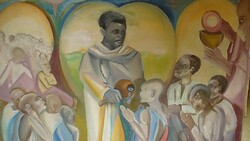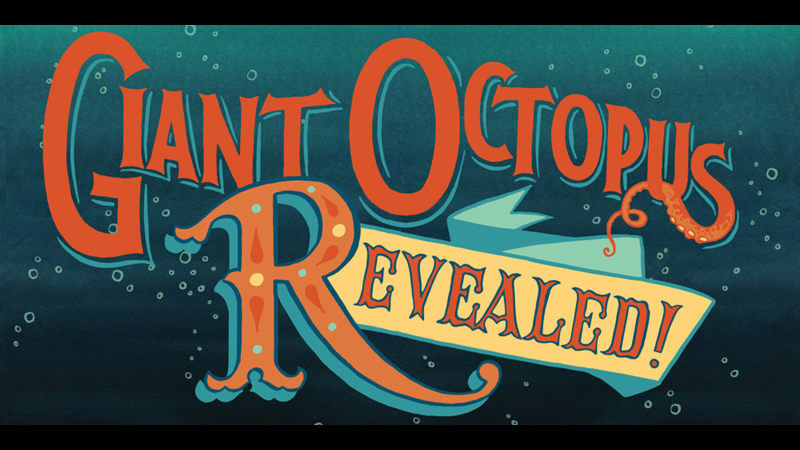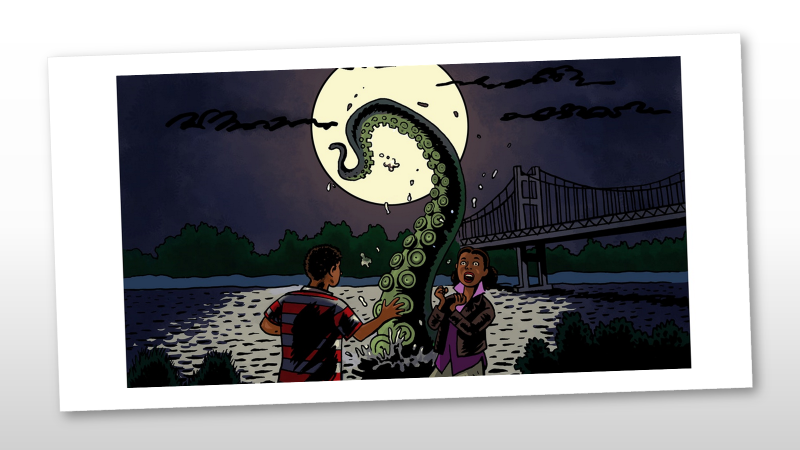Scott AndersonIsaiah 25:6-9 † Psalm 118 † 1 Corinthians 15:1-11 † Mark 16:1-8
A video version of this sermon can be found here. When I was young, we’d often go to the Saturday night races at the Tri-Cities raceway. We’d have a big group from the church that would gather in the stands of the unique 3-corner half-mile, high-bank track that would come roaring to life those summer evenings. Every now and then the late-model NASCAR circuit would come to town, with their powerful cars and big sponsors. You could tell the difference between them and the local racers that raced most Saturdays because they had those wide, sticky racing tires all around the car. The local racers, on the other hand, only had one of the big tires—on the front, right wheel, the outside wheel as the cars were always turning left around the track. You could tell the difference because of the tire, and the chaos that was much more common with these local racers. Now, this was especially true when, on some nights, the raceway held a special heat, just for the mechanics. This was the only time the mechanics would replace the regular drivers behind the wheel, and that was probably for the best. The mechanic heats were, well, chaos. Pandemonium. They were all over the track, and off the track. The bumps and scrapes and spin outs that often occurred with the aggressive driving on those nights was multiplied exponentially when the mechanics got behind the wheel. You might have thought it would have been just the opposite—that these mechanics who spent all their time fixing these vehicles would be the most careful, but, let me assure you, this was not the case! Not in the least. Did I use the word pandemonium already? How about chaos? Bedlam? Well, I’ve developed a theory about this that I think plays out in other areas of life as well. Let’s see what you think. I suspect that these mechanics were just, plain and simple, terrible drivers. I mean terrible—at least compared to the racers who rightly belonged behind the wheel. But that’s not the part of the theory I wanted to run by you. This is the part:
0 Comments
Scott AndersonActs 2:14a, 22-32 † Psalm 16 † 1 Peter 1:3-9 † John 20:19-31
A video version is available here. One of my favorite TV shows was Modern Family. A few weeks ago it wrapped its final episode after eleven seasons. At its best, the show combined great slapstick and physical comedy with some beautiful and, sometimes, even inspiring sentiment. One memorable episode way back in season five was titled “Australia.” Phil Dunphy went to Australia for a vacation because he had been conceived there, and his mother had always wanted him to go and visit. He’s finally decided to go fulfill her dying wish, and the rest of the family decides to tag along. The problem is that things don’t go very well for Phil. As soon as they arrive, he has an allergic reaction to a local fruit. Then he gets stung by a jelly fish. Then, in one of the best physical bits I’ve seen in a long time, he gets punched in the eye by a kangaroo that he thinks is the spirit of his mother. That’s worth the half-hour all by itself. Scott AndersonJeremiah 31:16 † Psalm 118:1-2, 14-24 † Acts 1:34-43 † Matthew 28:1-10
Two phrases catch my attention in these days of pandemic and social isolating. Two phrases seem especially relevant as we find ourselves a month into a disruptive reality most of us have never experienced before. The first is this: “Do not be afraid.” It is the message given by the angel—an other-worldly being who apparently looks like lightning in a jacket of snow and shows up just as a massive earthquake hits. Just to the side you have a couple of military guards laying there, by all appearances dead. I mean, the advice sounds a little unnecessary, doesn’t it? What could they possible be afraid of? Scott AndersonGenesis 1:1-2:4a † Response Psalm 136:1-9, 23-26 † Exodus 14:10-31; 15:20-21 † Response Exodus 15:1b-13, 17-18 † Isaiah 55:1-11 † Response Isaiah 12:2-6 † Ezekiel 36:24-28 † Response Psalm 42:1-11 and 43:1-5 † John 20:1-18
Do you remember now? Do you see that this age, this time, these struggles are no match for the Holy who moves and lives and breathes and thunders both within us and far beyond our human reach? We kept it short tonight—I know, that may surprise you! There are so many more stories that speak of possibility when only threat is visible, of light when it is still dark, of hope when all around us injustice and struggle are so apparent. The thing is we have been this way before. Many times! And by we, I mean this ragtag, imperfect, stiff-necked and selfish human history of which we are part and parcel. They is us. And we are them. Scott AndersonMatthew 21:1-11 † Psalm 118:1-2, 19-29
I suspect it is good for us to remember, especially on a day like today, that where we start is not where we end. It’s true of this infection curve that has become so ubiquitous to our Facebook feeds and news casts; it’s true of the limitations we are being asked to put on our movements and interactions; and it is true of this story of a parade and the tightly-packed cheering, chanting, dizzy crowd that may cause you to squirm as much as it does me, alert and militant in our commitment to social distancing and to the prevention of spreading this infection to our neighbors and loved ones. But here we are at the beginning of a Holy Week that is going to get even more crowded and super-heated than it already is here among the palms and coats and shouts, before we find ourselves just a week from now amidst the quiet of dawn and a garden and a tomb that is empty of even its one quarantined resident. Scott AndersonActs 11:1-18 † Psalm 148 † Revelation 21:1-6 † John 13:31-35 According to local legend, the largest octopus in the world lives below the Tacoma Narrows Bridge. Some say it’s a 600-pound creature, once named King Octopus by The News Tribune.[i] Others say it lives among the ruins of Galloping Gertie, the wreckage of the bridge that collapsed during the November 7th, 1940 storm into the white-capped waters of the Puget Sound. Douglass Brown was 15 when he saw a giant tentacle emerge from Puget Sound. He was walking along the beach with a girl he wanted to impress when he saw this arm come out of the water. “It was 10, 15 feet in the air,” he told a reporter for KUOW. “It looked like an octopus or something like that, and I just took off running.”[iii] Not surprisingly, there is no report on how the relationship fared after that fateful day.
“They try to scare you,” says commercial diver Kerry Donahue of these big octopi. “Their big defense mechanism [is that] they get bigger than you are.” The first time it happened to Donahue, it terrified him. “Because your radio is to the surface,” he told the reporter, “you take a lot of flak for screaming like a 2-year-old when you run into an octopus.” They can also get small, though. National Geographic set up a tank and shot a video to demonstrate how malleable these creatures are.[iv] Scott AndersonActs 5:27-32 † Psalm 118:14-29 † Revelation 1:4-8 † John 20:19-31 From the very beginning of the Christian church new disciples called catechumens were prepared during Lent for their baptism at Easter.  Catechumens were paired with sponsors and invited to a time of inquiry—learning, reflection and discernment within the church—because this move toward baptism was understood to be a radical move toward a new way of living in the world that required understanding and careful intention. Scott AndersonIf you haven’t already, you may want to get to know these faces. These are neighbors of ours, young Americans predominantly from the northwest, with others scattered throughout the country. They range in age from 10 years-old to their mid-twenties. And they are suing the federal government for knowingly causing climate change and violating their constitutional rights. They are litigants of the youth climate lawsuit known as Juliana v. United States.
Their complaint asserts that, through the government’s affirmative actions that cause climate change, it has violated the youngest generation’s constitutional rights to life, liberty, and property, as well as failed to protect essential public trust resources. The constitutional climate lawsuit was originally filed in Oregon in 2015 and has been making its way through the court system. The expectation is that the lawsuit will finally go to trial late this year, although that could change given the considerable resistance it has received from the federal government and corporate interests throughout the process. Scott AndersonToday's Readings:
Jeremiah 31:1-6 • Colossians 3:1-4 • John 20:1-18 Have you ever gotten back something that you thought you had lost? Something of great value? Perhaps even something of absolute value? If you have, perhaps you can imagine what Mary may have felt when she finally realized that this one she supposed was the gardener was Jesus standing before her. When he spoke her name and she realized this was her teacher, the one she loved, the one whose feet she had washed with her hair and perfume and her tears, the one who had given her back her brother’s life, the one whose body she had been looking for all morning long in that garden, Mary realized she had been given back to her what was most precious. She had been given back her life. I think I can imagine something of what she’s experienced in John’s story. I’ve seen it recently, I think, something of the joy and astonishment and surprise and shudder I think she felt when she spoke that one word Rabbouni, teacher, and wrapped her arms around perhaps the only one in all the world who felt safe to her. I think I can imagine, because I’ve seen the tell-tale signs in the sobs of a grizzly, tough old-bird of a man who nearly lost his life and remembers next to nothing of the many weeks a machine breathed for him as his body slowly recovered from a massive trauma. |
St. Andrew SermonsCategories
All
|



 RSS Feed
RSS Feed